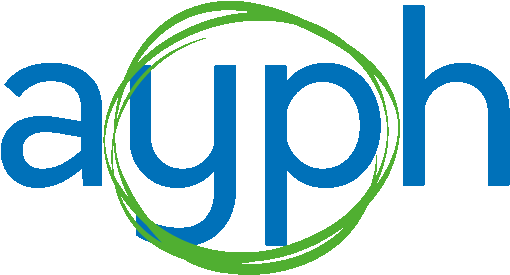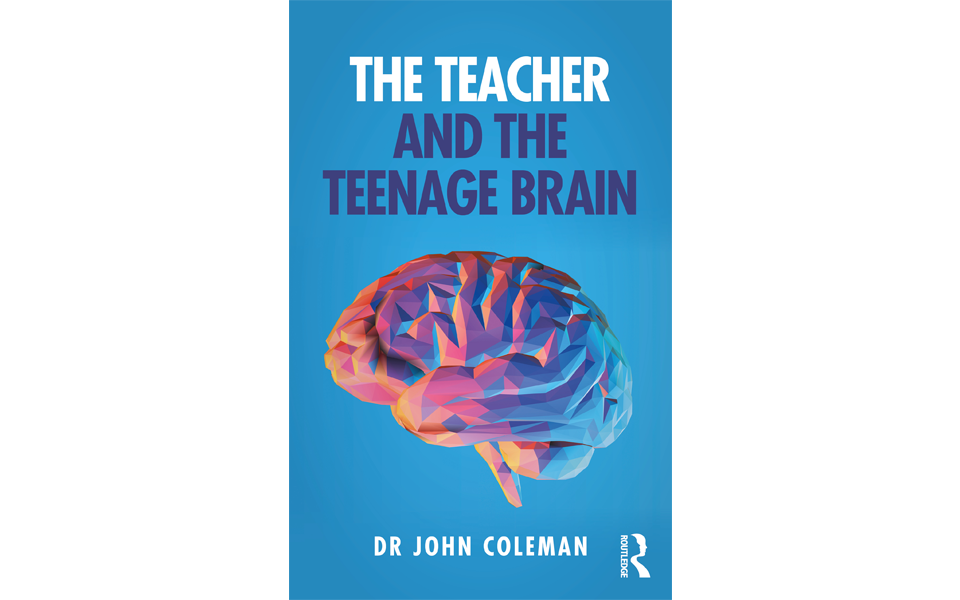Dr John Coleman
Publisher: Routledge
Publication Date: 27th May 2021
We are delighted to share a blog from our patron and former chair Dr John Coleman to mark the launch of his new book. Making sure that we take knowledge about young people’s development and share it in accessible ways is at the heart of AYPH’s work. Understanding teenage brain development is so important for all of us that work with young people and we look forward to working with John and others to share this learning more widely.
I wrote this book, “The teacher and the teenage brain”, for two reasons. First, because I believe that knowledge about teenage brain development can make a profound difference to the way adults understand and relate to young people. Second, I wanted to describe my search for novel ways to disseminate information about the teenage brain to parents, to professionals in health and education, and to young people themselves.
In recent years there has been an explosion of knowledge about the human brain. A lot of this new knowledge concerns the teenage brain. It is a striking fact that until 20 years ago it was believed that the brain stopped developing at the end of childhood. Now we know that the brain continues to change and develop through the teenage years and into the early twenties. This fact was simply not known to previous generations.
The most significant finding relates to the degree of change that occurs in the brain during the adolescent years. This knowledge is of special importance for any adult who lives or works with young people. The brain undergoes more change and maturation during the teenage years than at any time in the life cycle apart from the first three years of life. This fact has profound implications for our understanding of teenage behaviour. Once we recognise the degree of change, then the behaviour of those in this age range becomes so much more explicable.
It is also important to note that, due to the change and reorganisation of the brain at this time, the teenage years are a critical period, a time with great potential for change. After attending a course on the teen brain a school nurse said to me:
One thing I found particularly powerful – knowing that it is the years of puberty and afterwards that are so significant. For the teens who have had a disadvantaged start, they feel that they are behind and never going to catch up. So, ideas about the changing brain can be very empowering. It is important to bring it out, that things are changing, it is not all set.
The topics covered in the book include risk and reward, the social brain, memory and learning, the management of stress and anxiety, sleep, and topics to do with mental health. The book also contains details of workshops and lesson plans developed in order to make knowledge about the teenage brain more widely available to adults and to young people.
This book has the word teacher in the title, since one obvious location for the introduction of this new knowledge is the school. Both teachers and students will benefit hugely from this knowledge. As one teacher put it:
“Anything that improves understanding of the young people we are working with must be a gain. I believe this is a huge step forward. Before I did the course (The teen brain course) I didn’t really understand how students are changing. Ideas about the changing brain can be very empowering.”
The work described in this book is also essential reading for all health professionals. I have already mentioned issues to do with mental health and emotional well-being.
As one wellbeing co-ordinator in a secondary school put it to me:
“A lot of our parents and students are self-diagnosing themselves with mental health problems. As soon as a child is moody, frustrated, angry, fed up with the world, parents automatically look it up on line and they go: ‘Oh! My child has got a personality disorder’, or something like that. They haven’t been to a GP or anything. It is very difficult to persuade a parent that this is normal. If we could do some sort of session on the teen brain for parents so that they could understand what is normal and what is not that would be brilliant”.
This is a particularly important time for health education. With the introduction of a new curriculum in Relationships, Sex and Health Education, a new focus on health and well-being in schools, as well as the long-term impact of the pandemic, a greater understanding of brain development in adolescence could not be more timely. As far as parents are concerned, the book shows how awareness of the changes in the brain can lead to a more sympathetic approach, and hopefully to a reduction in levels of conflict between the generations. This book will help to unravel the secrets of the teenage brain. I will leave the last word to this teacher:
“The impact on students? I think they get short-changed, I really do. I think teenagers get a bit of a raw deal, they are really misunderstood. They feel that. They actually know that. Understanding of the teen brain helps you to show more empathy to young people. If we as adults show them more empathy you get that back in return. I do honestly feel that it would help them feel a bit better understood, perhaps respected a bit more.”
 Dr John Coleman OBE, trained as a clinical psychologist. He has had many different roles in his career, most recently as a Senior Research Fellow in the Department of Education, University of Oxford (2006-2015). He is currently Visiting Professor at the University of Bedfordshire. John has written widely about adolescence and was a founder member of AYPH and Chair of Trustees until 2019.
Dr John Coleman OBE, trained as a clinical psychologist. He has had many different roles in his career, most recently as a Senior Research Fellow in the Department of Education, University of Oxford (2006-2015). He is currently Visiting Professor at the University of Bedfordshire. John has written widely about adolescence and was a founder member of AYPH and Chair of Trustees until 2019.

